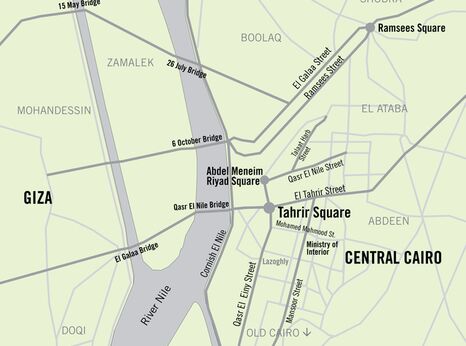Egypt: Abused journalist accused of terrorism

Solafa Magdy, Hossam el-Sayed and Mohamed Salah are freelance journalists working for different media outlets. The three are under investigations by the Supreme State Security Prosecution (SSSP), a special branch of the Public Prosecution responsible for prosecuting crimes that relate to “state security”, as part of case No. 488 of 2019, which is connected to the March 2019 anti-government protests. Solafa Magdy and Hossam el-Sayed were provisionally released on 14 April, pending investigations. Solafa Magdy and Mohamed Salah are facing trumped-up charges of “joining a terrorist group” and “spreading false news”, while Hossam el-Sayed is accused of “membership in a terrorist group”.
In the new case (No. 855/2020), SSSP prosecutors accused Mohamed Salah of “joining a terrorist group”, “spreading and broadcasting false rumours” and “misuse of social media”. On 16 March 2021, Mohamed Salah's pre-trial detention has been renewed for 45 days in his absence. In addition to Mohamed Salah, case No. 855/2020 includes other prisoners of conscience, already held in pre-trial detention in relation to separate investigations into similar unfounded terrorism-related charges, such as human rights defender and lawyer Mahienour el-Masry, journalist Esraa Abdelfattah and human rights defender and lawyer Mohamed el-Baqer.
According to information gathered by Amnesty International, prosecutors have based accusations against Mohamed Salah and the other prisoners of conscience mainly on National Security Agency (NSA) investigations, which defendants and their lawyers are not allowed to examine. Since last year, the SSSP has been increasingly bypassing court or prosecution decisions to release detainees held in prolonged pre-trial detention by issuing new detention orders covering similar charges.
Since President Abdel Fattah al-Sisi came to power, the authorities have cracked down on independent reporting and arbitrarily blocked hundreds of websites, raided and/or closed the offices of at least nine media outlets and arbitrarily detained scores of journalists. The arrests of Solafa Magdy, Hossam el-Sayed and Mohamed Salah came in the context of the post-September 2019 protest crackdown, the largest on dissenting voices since 2014. Amnesty International has documented how Egyptian security forces carried-out sweeping arrests of peaceful protesters, journalists, human rights lawyers, activists and political figures in a bid to silence critics and deter further protests. In May 2021, at least 28 journalists remained behind bars solely due to their media work or for expressing critical views on their social media accounts.
Torture and other ill-treatment are prohibited under the International Covenant on Civil and Political Rights, to which Egypt is a state party. Intentional acts by state agents that inflict “severe pain or suffering”, whether physical or mental, for such purposes as punishment, coercion or intimidation, obtaining a “confession”, or for any reason based on discrimination constitute torture.